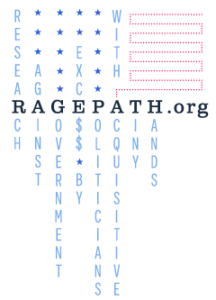Next week should have some big developments in the ongoing story of Trump and Russia. James Comey is set to testify. I have no idea what he’s going to say – but I imagine it will be far less than he knows and far more than we did.
The public discussion on Trump and Russia has focused on the issue of campaign collusion. I think it’s obvious that there was collusion between the Trump campaign and Russia and that most of it happened in public and is already fully known to us. I don’t believe that people are going to prove that Putin conspired in advance with Trump to orchestrate his election to the presidency, because I think it simply never happened.
Trump loves Russians and he has friends who are friends with powerful people in Russia. There were certainly Russian actors who worked to advance his interests during the election campaign. There were certainly American actors who courted Russian influence, seeking an advantage. But we also have evidence that Russians occasionally freaked out during the campaign and at one point even suspended operations supporting Trump out of alarm at his unstable conduct. (check out page 13 of the infamous “unverified memo” if you want some evidence).
While some coincidences are perfectly random, most are not. That doesn’t mean, however, that all coincidences have to be causally connected to one another. Many times, coincidences arise because they share certain predicate conditions. They cluster on the truth like barnacles on a whale, but the whale’s body is the only true connection between them.
We have evidence that Trump’s ties to Russia are deep and long-standing. During his 2000 presidential campaign, Trump excoriated Boris Yeltsin, calling the ailing reformer an “out-of-control” “disaster.” More intriguingly, contenders to replace Yeltsin (which Putin ultimately did) were traveling to New York to court Trump’s support as early as 1997. (Retired Russian general Aleksandr Lebed had a one-hour closed-door meeting with Trump in 1997 as he sought support for a bid to replace Yeltsin.)
Trump’s influence in Russia predates Putin. If Trump (or more likely, Trump’s Russian business associates) were acting as king-makers in the struggle to replace Yeltsin, then we’re going to need to take a broader perspective to understand Trump’s bizarre conduct towards Russia. That story doesn’t start in July of 2015, when Trump descended his golden escalator. The real story starts in New York, with Tamir Sapir and Sam Kislin, Russian immigrants who rocketed in the early nineties from running a Manhattan electronics store to controlling international business empires worth billions of dollars. Trump’s fortune has been deeply entwined with the rise of both men.
